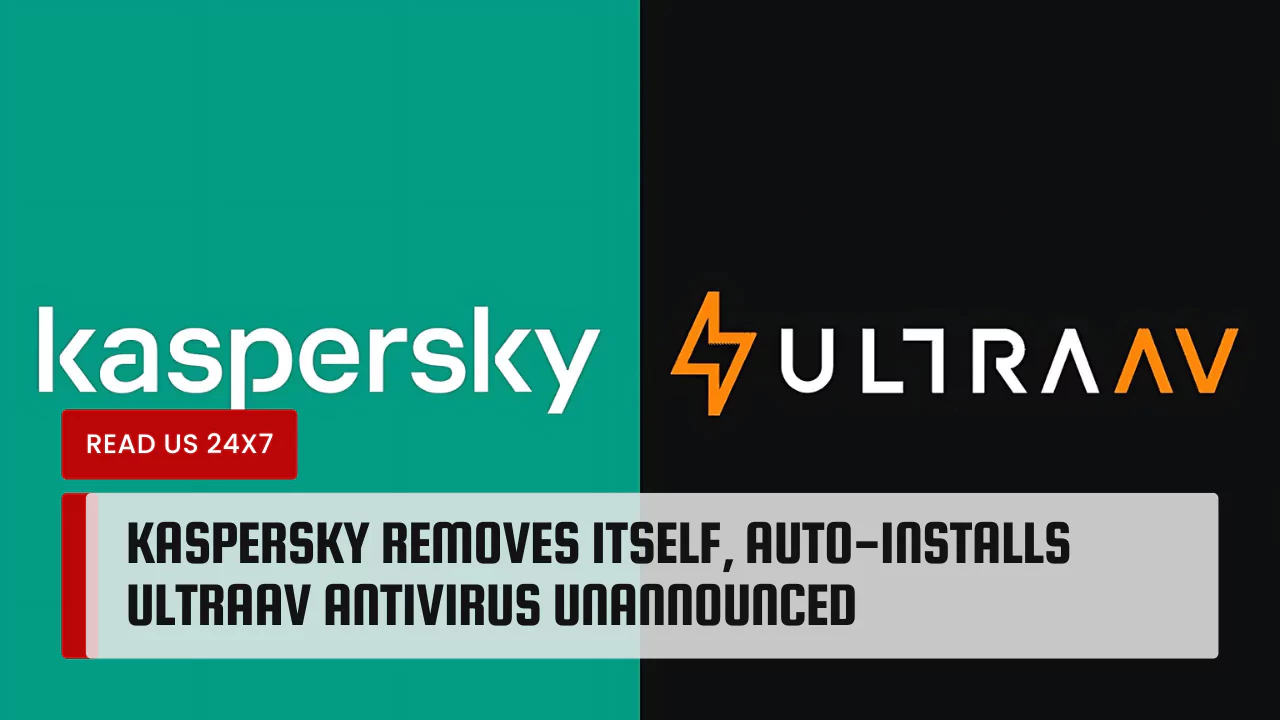Kaspersky, a well-known antivirus company, has recently deleted itself from users’ computers and installed UltraAV antivirus without any warning. This surprising change happened because Kaspersky decided to stop its operations in the United States. Customers were not told what was going to happen, and many felt confused and concerned about this sudden switch.
The Background
Kaspersky started facing problems when the U.S. government added the company to a list of businesses that are a national security concern. This happened in June 2024. The government announced that it would ban Kaspersky software updates and sales starting September 29, 2024. To comply with this decision, Kaspersky chose to close its U.S. offices and lay off its American employees. The company made this choice to protect itself in light of these restrictions.
In emails sent to customers, Kaspersky promised they would continue receiving antivirus protection but did not explain that their software would be deleted and replaced without notice. This led to misunderstandings and worries among users.
Customer Reactions
When users discovered the change, they were alarmed. Many reported that when they turned on their computers, Kaspersky was gone, and UltraAV was installed instead. Some thought they had a virus. One user shared how they were shocked to see a new antivirus system active on their desktop, while Kaspersky was no longer there. They felt scared, thinking their computer had been compromised.
Even when some users tried to uninstall UltraAV, they faced more issues. After removing the software, it would return upon restarting their computers. This behavior made people more suspicious, thinking it could potentially be some type of malware.
Details About the Transition
Kaspersky claimed its removal and the installation of UltraAV was necessary to keep users protected. They said to expect this change as part of their response to the U.S. government’s restrictions. Those whose computers had Kaspersky received a software update on September 19, which made the transition to UltraAV automatic and seamless.
However, many people felt this change was forceful and disrespectful. Kaspersky did not give users the chance to choose whether they wanted to switch to UltraAV or not. Instead, the update removed a product that users had paid for.
About UltraAV
UltraAV is a product owned by the Pango Group. This group controls other VPN brands, like Hotspot Shield. Little is known about the features of UltraAV compared to Kaspersky’s offerings. However, UltraAV claims to provide similar protections. The company says it has many additional features that Kaspersky users can benefit from once they switch.
Some people worry about installing UltraAV because of the method used for the transition. They see it as a sign that UltraAV may not respect user choices, which raises safety and privacy concerns.
User Concerns and Trust Issues
The lack of communication from Kaspersky before this change caused many users to feel betrayed. Kaspersky had been a trusted name in cybersecurity, known for its strong protection against threats. Now, users are left feeling uncertain. Some even believe that they should have been prepared for this switch since the government had announced the ban months prior.
Many feel that Kaspersky should have been clear about the shutdown process and offered choices to its customers. The worries about unwanted software and potential malware infections overshadow the idea of continued protection with UltraAV.
Looking Ahead
As Kaspersky ceases operations in the U.S., many customers now find themselves in a tricky position. They must decide if they want to stick with UltraAV or look for other antivirus options. It is essential for users to understand what kinds of antivirus programs they trust.
Also, users need to educate themselves about the nature of the software installed on their computers. Finding reliable information about UltraAV and examining user reviews can help mitigate fears.
Conclusion
Kaspersky’s recent actions—removing its software and installing UltraAV without consent—shocked many users. This behavior raises questions about user rights and software ethics. As Kaspersky exits the U.S. market, customers must navigate this unexpected change and consider their cybersecurity options. It is vital for everyone to stay informed and choose software that aligns with their needs and expectations for privacy and security.


